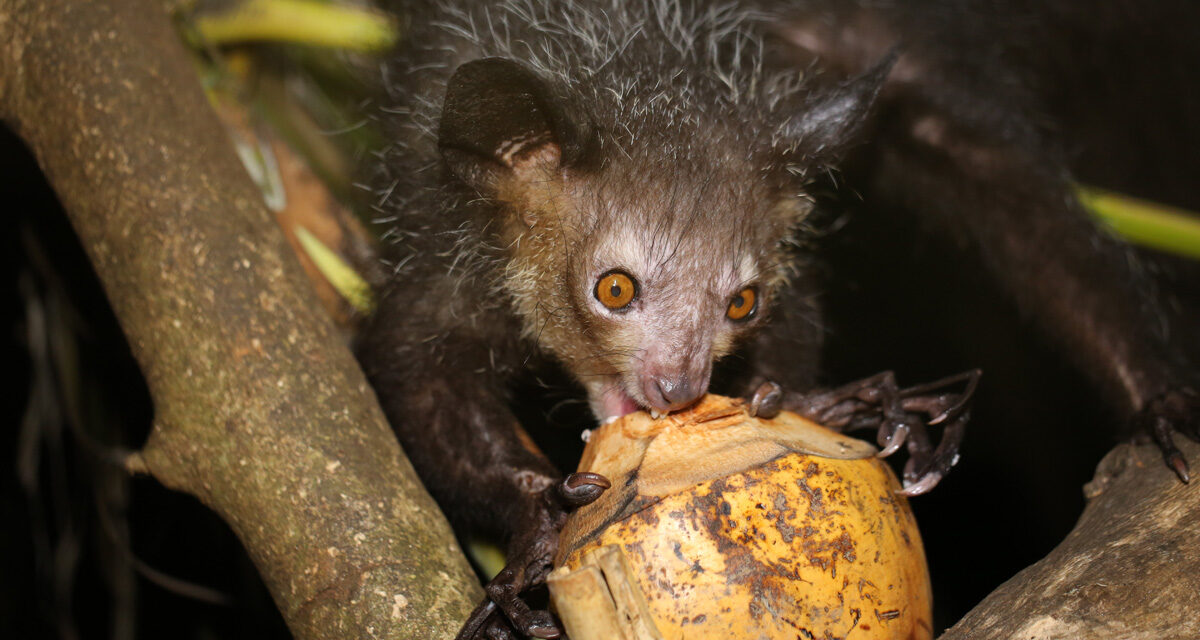The “fady” is a Malagasy socio-cultural concept linked to the ancestors that brings together a set of rules and prohibitions. It can be limited to a place, a person or to certain animals and plants. In Madagascar, this invisible network of commandments or taboos is, in general, scrupulously respected. However, various factors, including poverty, can lead a person to transgress a fady. Respect for the concept of “fady” can impact environmental protection in both positive and negative ways.
By Valisoa Rasolofomboahangy
Photo credit: “Rhett A. Butler / Mongabay”
Photograph: An aye-aye (Daubentonia madagascariensis), a species of lemur that is listed as endangered but hunted because it is considered to carry evil spirits.
Fady can also have negative effects on the environment. An ancestral commandment, repeated from generation to generation, can be a factor in the destruction of entire forests. “Despite criminal sanctions, tavy (slash and burn) is still widely practiced in eastern Madagascar because it is deeply rooted in the culture of this part of the island,” says Randriamaniraka. According to him, in this region, it is fady, in the sense that it is not recommended by the ancestors, to use other agricultural methods.
Another example is the illegal international trafficking of radiated tortoises (Astrochelys radiata), a species endemic to southwestern Madagascar and classified as critically endangered on the IUCN red list. These animals are dangerously threatened by commands considered fady. In addition to being consumed for their meat by the rapidly growing population in this region, these turtles are trafficked throughout the island and are destined to live domesticated as they are considered to be good luck charms*.
Hunted as carriers of evil spirits
“My whole family and I have each had turtles in each of our homes for as long as we can remember,” said Rasoavahoaka, a 72-year-old housewife living in Antsirabe in the center of the country. “We have to because it was passed down to us that it brings us good luck and protects us from burglars.”
Other species, feared because of their physical appearance, are hunted clandestinely. In many areas, chameleons are fady. It is said that they bring bad luck to those who see them. The aye-aye (Daubentonia madagascariensis), a species of lemur in danger of extinction according to the IUCN, and the owl (Asio madagascariensis) are also hunted because they are considered to carry evil spirits.
Jonah Ratsimbazafy, a Madagascan primatologist and president of the International Primatological Society (IPS), according to whom a recently discovered lemur has been named Microcebus jonahi, referred on his Facebook page to the dangers of the fady on the aye-aye and the owl. According to him, awareness of their protection remains difficult because of the deeply rooted belief in the mentalities that these species bring bad luck.
Read more about this issue in our next newsletter.































